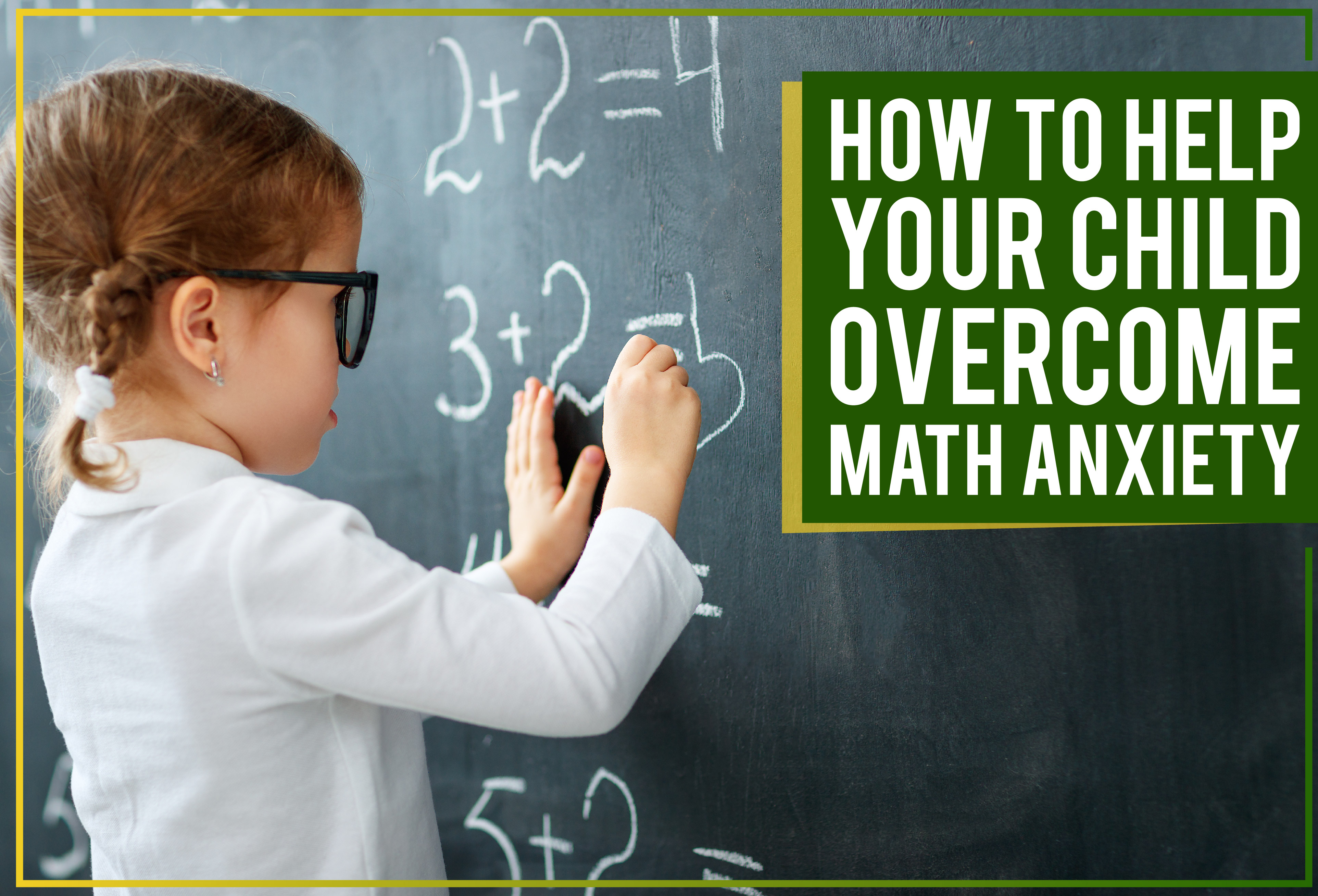How to Help Your Child Overcome Math Anxiety
Did you struggle when it came to learning math when you were a kid? For many people, the sheer terror of being faced with numbers or symbols and not knowing what to do with them is very real. The knot in your stomach tightens, and your heart starts racing. Unfortunately, these experiences are way too familiar for many children. While math anxiety is common among kids who feel a strong aversion to math, developing an intense fear of this subject area can lead to poor academic performance or even avoidance of all things mathematical.
As parents, there are things you can do to help change the way your little one views math. Read on for some helpful tips on how you can help your child overcome his or her fear of math!
Introduce math in a fun light
Children’s attitudes towards math can be influenced by how we introduce the subject matter to them. Some children are naturally more eager to learn about math, but it's up to you as a parent to help your child feel more comfortable if they don’t have an affinity towards the subject.
Approach math topics with a sense of excitement and enthusiasm.
There are many ways you can make that happen. Try incorporating games into your math lessons at home, or insert math activities into daily activities that your child enjoys. For example, if your little one loves to draw and paint, you can set up a math scavenger hunt. The options are vast. All you need to do is to think outside the box!
Play math games
A fun way to introduce math is through games. There are many educational apps for kids, and you can also use some traditional board games that teach basic arithmetic skills in an entertaining way. Consider playing number-centric board games, like Monopoly, or make use of household items to teach basic math concepts.
Instead of resorting to pencil and paper when you're teaching your child about addition or subtraction, be a bit more creative. Consider using colorful popsicle sticks, or conduct lessons in a sandbox!
Keep practicing
Sharpening your child's math skills all boils down to practice. So squeeze in chances to practice whenever you can. This doesn't always have to involve sitting down at a desk and chair. These opportunities can occur when you ask impromptu questions during bath time or asking your child to identify the numbers they see on road signs during a car ride.
Also, make sure your child develops a solid grasp of basics like addition, subtraction, and multiplication, before moving on to more complex math skills.
Encourage questions
Your child should never be afraid to ask for help when needed. Encourage your child to ask questions and be honest. If they are struggling, assure your child that it's okay - math can be challenging for everyone sometimes. Kids should never feel embarrassed to ask for help or admit that they're struggling.
Give support, not discouragement
Young kids who are anxious about math need extra support and encouragement. You can encourage and boost their confidence by letting your children know that you believe in them and that you're there to provide any help they need to help them improve.
Also, don't foster the idea that some people are born with or without math skills. Every child learns differently and at his or her own pace, but we all start from scratch. Your child may experience early struggles with math, but with adequate support and practice, he or she can improve and excel over time.
Take it slow
Because every child learns at a different pace, it's essential to set realistic expectations. Kids who struggle in math may have trouble when asked to work too quickly through a series of problems, so don't push them too hard or set the bar too high. Instead, give your child enough time to absorb and comprehend each topic or concept before proceeding entirely. Be sure to break down complex ideas into manageable pieces. Doing so will benefit kids, as it places less pressure on them.
Math can be exciting for some kids, but math challenges may be too overwhelming for others to face on their own. You can help your little one overcome his or her math anxiety by using these tips.
Here at Mrs. Myers' Reading Room, our numeracy program focuses on mathematical concepts and incorporates student interaction through problem-solving tasks. Visit our website to learn more.





